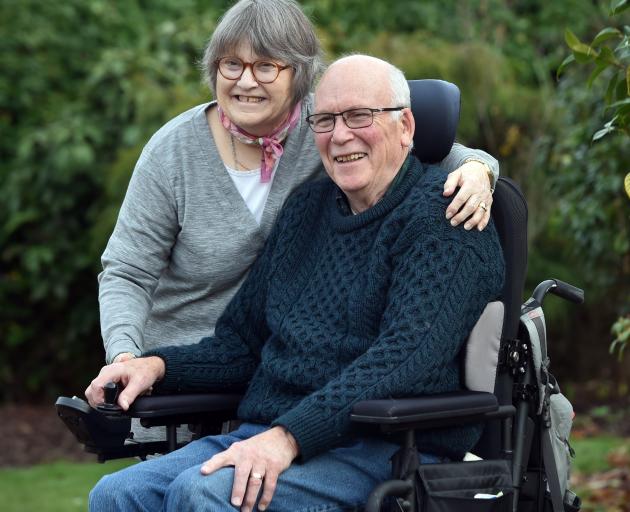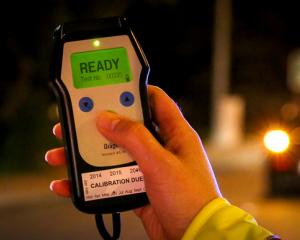Maxine Hall is exhausted after six years providing full-time care to her husband David, who has secondary progressive multiple sclerosis.
She hopes a nationwide petition calling on the Government to improve conditions will highlight the struggles she and many others who care for family members face.
The New Zealand Carers Alliance petition and WeCare awareness campaign is advocating for the establishment of a minister or commissioner for family carers, and policies to support carers physically, mentally and financially.
For Mrs Hall (73), there had been about 20 days where she was not acting as a full-time carer to her wheelchair-bound husband, including 14 days when she was in hospital with a broken ankle.
"I have two co-existing emotions — exhaustion and dread."
She had type 1 diabetes, and her own health issues made her role as a carer more difficult.

"An acquaintance in a similar situation to mine has to book her husband into a care facility a year in advance, if there is a vacancy."
The situation was made worse because different organisations did different things, and there seemed to be no co-ordination.
The couple received half an hour’s free care per week each, and her husband had visits for a shower three times a week.
"The daily grind of laundry, making sure my husband eats properly, attends his medical and dental appointments and attempting to keep him from descending into the deep depression which saw him hospitalised several years ago wears on me."
The couple bought a wheelchair-equipped vehicle, but getting her husband into it involved a lot of physical activity.
Many people were in a similar situation, she said.
Fear her husband would choke or fall was constant.
He was assessed about every six months, but this seemed like a box-ticking exercise to keep him at home and save the government money.
She felt her role was treated as "worthless and unvalued".
"This is modern slavery, as far as I’m concerned."
Carers Alliance secretariat Laurie Hilsgen said despite the implementation of several carers’ strategy action plans since 2008, true government support was still desperately lacking.
A hidden workforce of a million carers were suffering burnout and struggling daily, in dire need of financial support and emergency respite, she said.
"Those providing intensive support deserve to be fairly paid like any other workforce as they are providing a valuable service to family members and the country.
Carers wanted the Government to address issues raised in two reports, The State of Caring in Aotearoa, commissioned in 2021, and an Infometrics report commissioned last year.
The first report found carers had higher rates of anxiety and loneliness, and 70% were suffering from depression.
The second calculated the economic value of carers’ mostly unpaid work as being $17.6billion a year.
The petition closes on July 18, after which it will be presented to Parliament.
Advertisement













